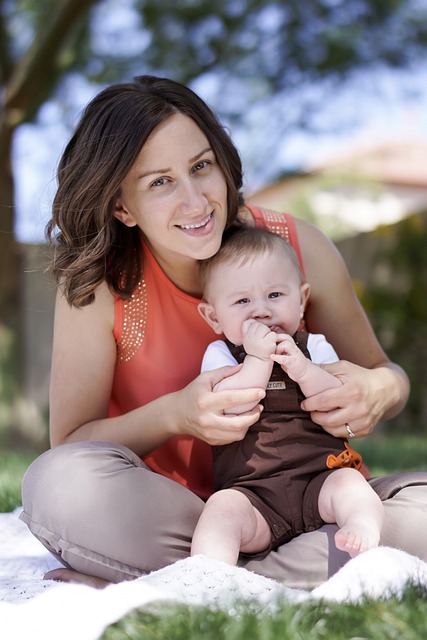In child custody disputes, a custody lawyer is essential for navigating complex legal and emotional aspects. They guide parents through options like joint or sole custody, ensuring fair visitation rights and the child's best interests. Using mediation and collaborative approaches, these experts facilitate open communication to create tailored custody agreements and parenting plans. Post-dispute, a parenting plan aids in fostering healthy co-parenting relationships, minimizing conflict and focusing on the child's well-being. Keywords: Child custody, custody lawyer, visitation rights, joint custody, sole custody, child visitation, custody agreements, parental rights, custody mediation, child custody attorney, custody battle, custody arrangement, parenting plan.
Navigating a custody dispute can be an emotionally charged and complex process, particularly when the well-being of children is at stake. Understanding your rights and options is vital. This article guides you through the intricate world of child custody, focusing on compassionate approaches. We explore key aspects such as recognizing parental rights, the role of a specialized custody lawyer, alternative dispute resolution methods like mediation, and collaborative strategies for creating post-dispute co-parenting plans, emphasizing that effective custody agreements focus not just on legalities but also on the best interests of the child.
- Understanding Child Custody Disputes: Navigating Parental Rights and Legal Options
- The Role of a Custody Lawyer: Advocacy and Support During Turbulent Times
- Alternative Dispute Resolution: Mediation as a Pathway to Compassionate Agreements
- Creating a Parenting Plan: Collaborative Approach for Post-Dispute Co-Parenting
Understanding Child Custody Disputes: Navigating Parental Rights and Legal Options

Child custody disputes are complex legal battles that can be emotionally taxing for all involved parties, especially children. Understanding the dynamics of parental rights and legal options is crucial during such times. These conflicts often arise when parents disagree on who should have primary physical and legal custody of their offspring or when seeking to modify existing custody agreements.
In such scenarios, a custody lawyer becomes an indispensable ally. They guide clients through the intricate process, helping them explore various options like joint custody, where both parents share responsibilities, or sole custody, where one parent has complete decision-making power. Visitation rights and child visitation schedules are also integral parts of these agreements, ensuring children maintain meaningful relationships with both parents. Through mediation and collaborative approaches, a child custody attorney facilitates open communication, aiming to reach amicable custody arrangements that prioritize the best interests of the child while respecting parental rights.
The Role of a Custody Lawyer: Advocacy and Support During Turbulent Times

In the midst of a custody dispute, having a skilled custody lawyer by your side is invaluable. These legal professionals are equipped to navigate the complexities of child custody cases, ensuring that all aspects of parental rights and visitation rights are protected. A custody lawyer acts as an advocate, guiding clients through every step of the process, from initial consultations to court appearances. They help craft custody agreements and parenting plans tailored to the unique needs of each family.
Beyond legal representation, a custody lawyer offers emotional support during what can be a turbulent time. They understand the gravity of custody battles and provide reassurance, helping clients maintain their focus on what’s best for their children. Through custody mediation and negotiation, these lawyers strive to reach amicable solutions, fostering cooperation between parents. Their expertise facilitates open communication, aiming to establish joint custody or sole custody arrangements that are in the child’s best interest while respecting both parents’ rights.
Alternative Dispute Resolution: Mediation as a Pathway to Compassionate Agreements

In the midst of a custody dispute, the traditional courtroom setting can feel like a battleground, intensifying emotions and hardening positions. This is where Alternative Dispute Resolution (ADR) steps in as a beacon of hope, offering a more compassionate and collaborative approach to resolving complex child custody matters. Among ADR methods, mediation stands out as an effective pathway to achieving mutually agreeable custody agreements.
Trained mediators facilitate open dialogue between parents, fostering an environment where feelings can be expressed and understood. This process enables parents to navigate the emotional landscape surrounding visitation rights and parental rights, ultimately leading to more sustainable and compassionate child custody arrangements. Unlike a court trial, mediation prioritizes cooperative problem-solving over adversarial tactics, empowering parents to create a parenting plan that aligns with their shared goals for their child’s well-being.
Creating a Parenting Plan: Collaborative Approach for Post-Dispute Co-Parenting

After a custody dispute, establishing a clear and collaborative parenting plan is vital for fostering healthy co-parenting relationships. This process involves both parents working together to create a schedule that prioritizes the child’s best interests while respecting each parent’s parental rights and visitation rights. A successful parenting plan outlines specific arrangements for physical custody, decision-making authority, and communication protocols between parents.
A custody lawyer or mediator can facilitate this collaborative approach, guiding parents through negotiations to reach mutually agreeable terms. The goal is to minimize conflict and create a structured environment that allows both parents to maintain significant and positive roles in their child’s life post-dispute. This proactive strategy enables parents to focus on co-parenting effectively rather than reliving the custody battle.
Navigating a child custody dispute is an emotionally challenging process. By understanding the legal framework surrounding parental rights and exploring options like mediation, parents can work towards compassionate guidance and agreeable custody arrangements. A qualified custody lawyer can provide invaluable advocacy and support throughout this turbulent time, ensuring that both parents’ and children’s best interests are represented. Through collaborative approaches, including the creation of a comprehensive parenting plan, co-parents can find common ground and foster a healthy environment for their children post-dispute.
